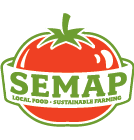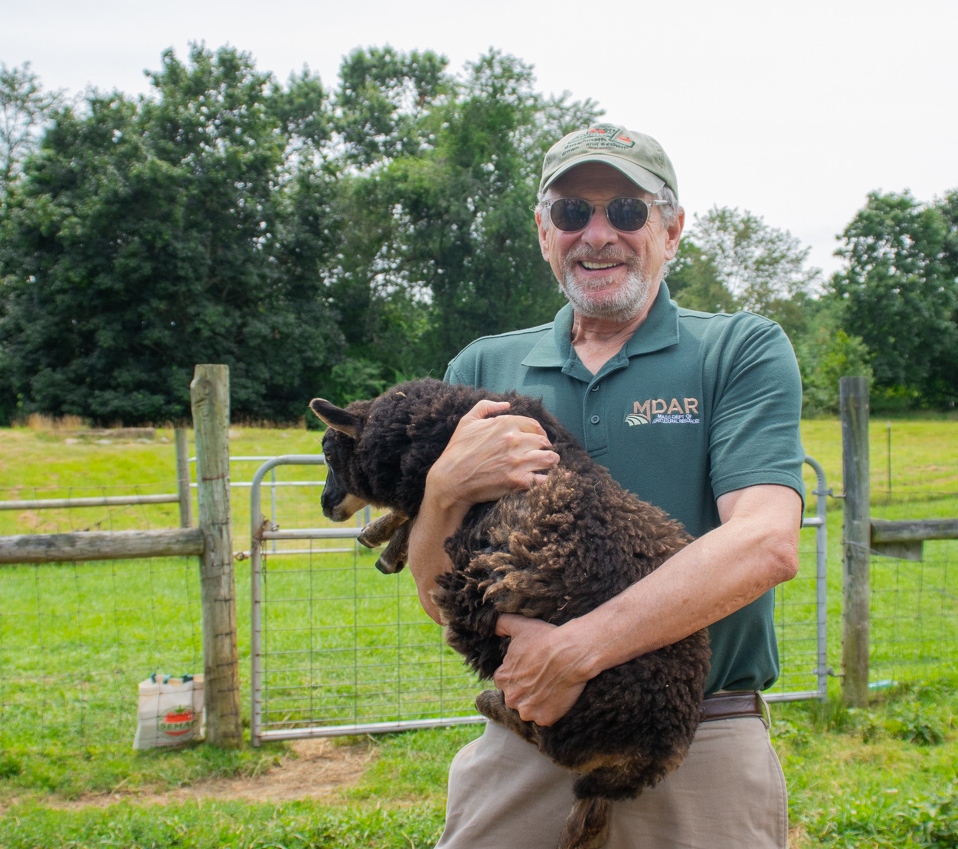Last month, SEMAP brought Massachusetts Commissioner of Agriculture John Lebeaux out on a tour of several local farms in Bristol and Plymouth counties. The Massachusetts Department of Agricultural Resources (MDAR) staff visits Southeastern Massachusetts every year to meet farmers on the field, and get their input on the state’s food and agriculture programs.
Our first stop was C&C Reading Farm in West Bridgewater. Owners Peter and Lynn Reading displayed their farm stand and fields while explaining how the COVID-19 pandemic affected their vegetable farming business.
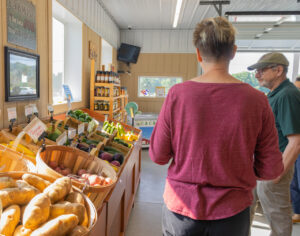
“2020 was actually our farm’s best year ever,” said Lynn. Bridgewater-area shoppers, concerned about crowded grocery stores, visited more open-air farm stands like C&C Reading. The Readings met this new demand by growing more produce for their farm stand and strengthening relationships with other local farmers. Farmers continue to work hard over a year and a half after the first U.S. lockdown. Just that morning, Peter had woken up at 3 a.m. to tend the fields.
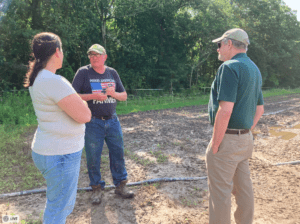
Next, we stopped by Revival Farm’s main space in Plympton. Owners Kathryn and Justin Shepard run this meat production business alongside both of their full-time, off-farm jobs. The couple, both first-generation farmers, is raising 100 free-range pigs this year across four separate plots of land. Accessing contiguous land is difficult for beginning farmers like the Shepards, since many affordable lots in Eastern Massachusetts are small and disconnected.
“Our whole business is dedicated to raising our pigs in quality open space,” said Justin. Despite these land access challenges, Revival Farm successfully sells through farmers markets, an online ordering platform, and several local farm stores in Southeastern Massachusetts.
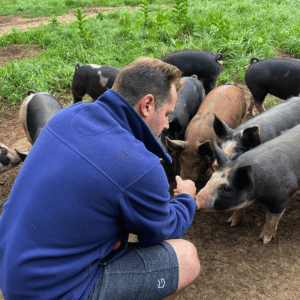
One of Revival Farm’s small plots of land is at Soule Homestead in Middleboro, a historic farm that hosts an education center and leases land to local beginning farmers. Plymouth County Representative Kathy LaNatra and her staffer Chris Jean, along with State Senator Michael Brady’s aide Ed Miller, joined us here to learn more about Soule’s role in the local agriculture community. The Town of Middleboro has owned this 120-acre land parcel since 1987, protecting it from construction and development that would permanently damage its rich agricultural soils. Soule’s unique nonprofit model allows beginning farmers like Revival Farm to lease portions of that land and build a strong knowledge base of agricultural business.
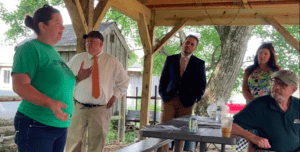
“We’re cultivating the next generation of farmers here,” said Executive Director Meg Riley. “It’s a space for people to learn, grow, and get the support they need to be successful.”
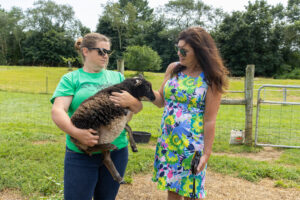
Afterward, MDAR staff and SEMAP visited neighboring Lolans Farm in Middleboro. This 75-acre dairy farm has been in operation since 1946, when co-owner Susan Shields’s grandparents purchased the land. The farm is a member of the Cabot Cooperative. Lolans has adapted to changes in the dairy industry throughout their decades in business. Milk prices in the U.S. have dropped significantly over the past few decades, meaning that dairy farms like Lolans needed to diversify their products to stay profitable. Susan and her husband Sam have an additional vegetable garden and public-facing farmstand, which grew more popular during the COVID-19 pandemic.
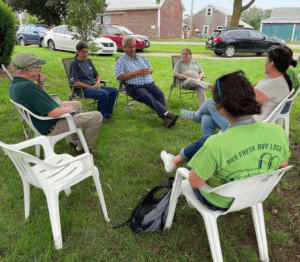
After Lolans Farm, the team headed up to Duxbury to meet the team at 2 Rock Oyster Farm. You can read more about our aquaculture visit here!
Strong connections between farmers, legislators, organizations like SEMAP, and other community members strengthen the future of local food in Southeastern Massachusetts and beyond. The Massachusetts Department of Agricultural Resources’s mission is to help keep Massachusetts’ food supply safe and secure, and to work to keep Massachusetts agriculture economically and environmentally sound.
